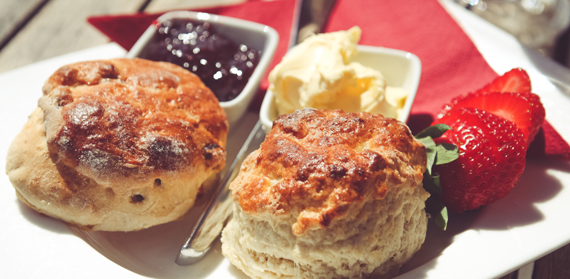Image: Shutterstock
Guest post Jordon Lazell, Centre for Business in Society
Food is an important part of any holiday. Through the consumption of food, tourists are able to engage with local culture, traditions and gauge a deeper understanding of the landscape in order to ensure holiday experiences are authentic. A third of tourist expenditure is estimated to be spent on food which represents a significant source of revenue for the tourism industry (Mak et al. 2012). The development of gastronomic experiences in tourism destinations is a fast growing sector, stimulating economic development at local and regional level. There has been an implicit growth in the promotion of ethical and sustainable food in tourism destinations. The consumption and engagement with higher quality foods can help frame the social and cultural values associated with tourism places (Sims, 2009). Destinations that are particularly well known for their food have been shown to contain an informal network of local actors who work together to facilitate the provision of such sustainable food to tourists. Our research undertaken in the sea side town of St Ives in Cornwall highlighted this (see previous blog post). We also wanted to examine tourists’ intentions behind consuming sustainable food whilst on holiday.
Despite the move towards more sustainable and ethical food sourcing practices, the collective impact of food consumption by tourists has negative environmental and social implications (World Tourism Organization, 2012). These include increased pollution from the transportation and infrastructure required to provide and service the hospitality sector, the importing of specific food stuff to meet tourist demand and preferences and a significant increase in waste. These activities are closely linked to tourist demand and therefore further understanding of their behaviours in their holiday destination is important in order to move towards more sustainable tourist consumption patterns. St Ives is a destination particularly known for Cornish cuisine and therefore was an appropriate place to study tourist’s engagement with sustainable food.
By holding discussions with tourists whilst on holiday, our research enquired into the role of food within their holiday experiences, the attraction and importance of sustainable and ethical food on offer and how their routines and habits of consuming food differed in comparison with their everyday behaviours at home. In domestic settings the purchasing and consumption of more sustainable food is well established, communicated via organic, fair trade and free range labelling amongst other branding. Little is known however about how such behaviours carry over in tourism contexts.
From our study, we found that tourists indicated that the localness, freshness and uniqueness of the dining experience were important when eating on holiday. Tourists expressed a preference for the food in St Ives making a comparison to supermarkets and other mainstream outlets to make a distinction, as one participant noted:
“Well you don’t have those kind of shops at home and you would be getting them from the likes of Greggs or the supermarket and they are not as nice. Probably because all of those down there are baked on the premises and all fresh in the traditional way”
Tourists held assumptions that food provided in St Ives had been produced in a sustainable way and drew upon observations made to justify this as, one participant commented:
“I think the fish is a big deal down there so obviously in terms of acting responsibly, the blokes go out in the morning, they catch the fish and it is not all coming into St Ives, obviously it travels elsewhere, but as far as I can see from what I have seen ..they may fish ethically”
Tourists noted that they actively avoided commercial and chain restaurants and placed value upon the idea that their expenditure on food is supporting the local economy by choosing to purchase food from and dine at independent, small businesses. With regards to consuming more sustainably, tourists were found not to be actively seeking sustainable food but often indulged in food that was advertised as local or sustainable when available.
What we found was that sustainable and ethical food formed an intrinsic part of the holiday experience but the majority of tourists were not actively seeking such qualities in the dining experiences. However, it was evident that the availability of such higher quality, culturally embedded food enhanced their holiday experience. Certain sustainable behaviours were carried over and practiced in the tourism destination, such as recycling and preventing food wastage, however the need for unique food experiences and opportunities for hedonism caused tourists to stray from the restraints around food that they normally practiced, as one participant noted:
“we tried various local things, so we had like a Cornish Pasty, we had like clotted cream, ice cream, a few other bits and pieces, cream tea, so it was a really unhealthy day actually.”
To find out more about our research and sign up for the ESRC Festival of Science event ‘Leading Locally: Sustainable Food Tourism in St Ives” on the 10th of November 2016 from 2:30 to 4:30pm at the Farmers Market, Guildhall, St Ives, TR26 2DS.
More information is available on the event website.
Research Team: Jordon Lazell; Professor Marylyn Carrigan; Natalie Dukes; Rebecca Beech (Centre for Business in Society; Coventry University); Dr. Carmela Bosangit (Swansea University).
References
Mak, A.H.N., Lumbers, M. and Eves, A. (2012) Globalisation and food consumption tourism. Annals of Tourism Management. 39 (1) 171-196
Sims, R. (2009) Food, place and authenticity: local food and the sustainable tourism experience. Journal of Sustainable Tourism. 17 (3)321-336
World Tourism Organization (2012) Global Report on Food Tourism- AM Reports: Volume 4. [online] Available from <http://cf.cdn.unwto.org/sites/all/files/pdf/global_report_on_food_tourism.pdf> [4 October 2016).




Comments are disabled